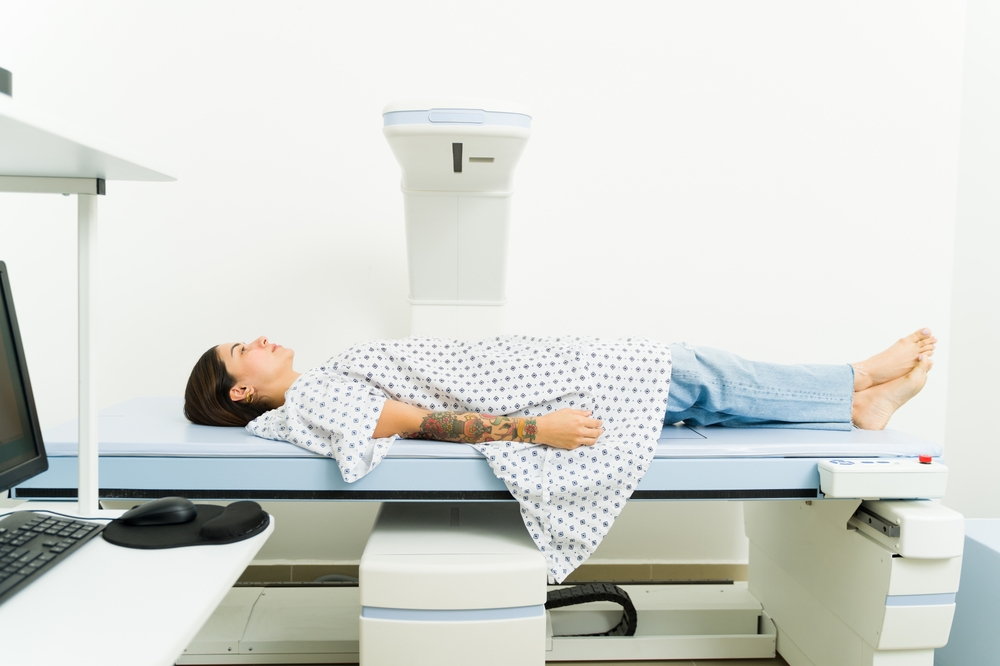If you’re concerned about osteoporosis or your long-term bone health, a bone density test—also known as a DXA (or DEXA) scan—can give you essential answers.
What Is a DXA Scan?
A DXA (dual-energy X-ray absorptiometry) scan is a non-invasive test used to measure bone mineral density (BMD). It works similarly to shining a flashlight through a curtain. The denser the curtain, the less light gets through, just like how the DXA scanner measures how much of the X-ray passes through your bones to determine their density.
Why Bone Density Matters
Bone density plays a critical role in keeping your skeleton strong and stable. Low bone mass—caused by either bone loss or inadequate bone production—can weaken bones and increase the risk of fractures, even from simple movements or minor falls.
How the DXA Scan Works
The test is simple and painless. You’ll lie on your back for a few minutes while a small scanner passes over specific areas of your body, typically your spine and at least one hip. In some cases, you may rest your legs on a support to better position your back. No injections or contrast dyes are involved, and the radiation exposure is extremely low—about the same as a four-hour airplane flight.
Who Should Get a DXA Scan?
The World Health Organization (WHO) recommends a FRAX screening for:
- Women over age 40
- Men over age 50
This initial risk assessment estimates your 10-year probability of a major fracture. If your FRAX results show elevated risk, your provider may recommend a DXA scan for a more in-depth look at your bone health.
What Happens After the Scan?
Once the scan is complete, your results will be interpreted by a specialist who will assess:
- Bone density (quantity)
- Bone quality (structural integrity)
- Fracture risk
Your Iowa Ortho provider will combine these insights with your medical history and physical exam to develop a personalized treatment or prevention plan. This might include medication, nutritional recommendations, lifestyle changes, or follow-up scans to monitor progress over time.
Protect Your Bones—Early Detection Matters
A DXA scan is one of the best tools available for detecting early signs of osteoporosis before a fracture occurs. If you’re at risk or simply want peace of mind, Iowa Ortho is here to guide you every step of the way.

